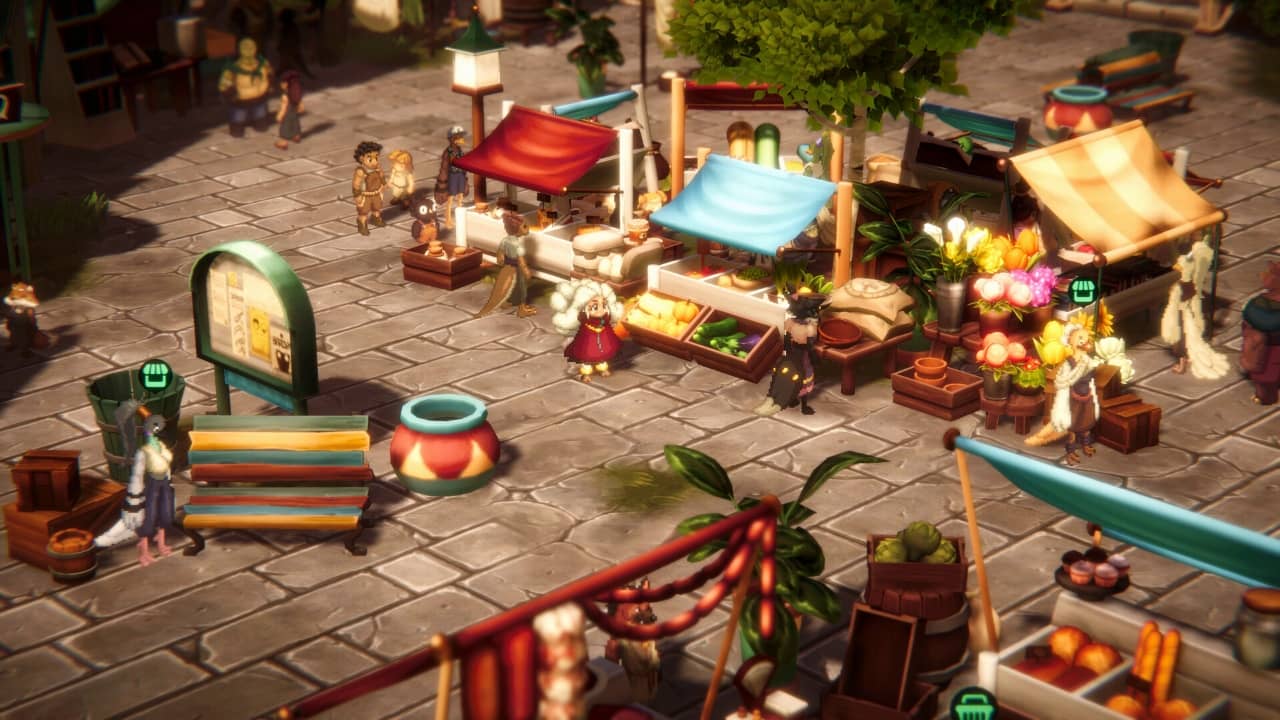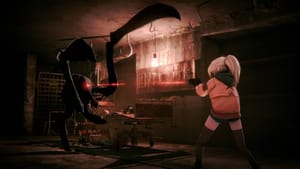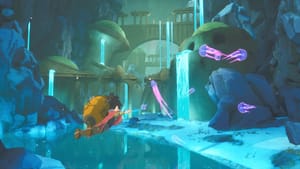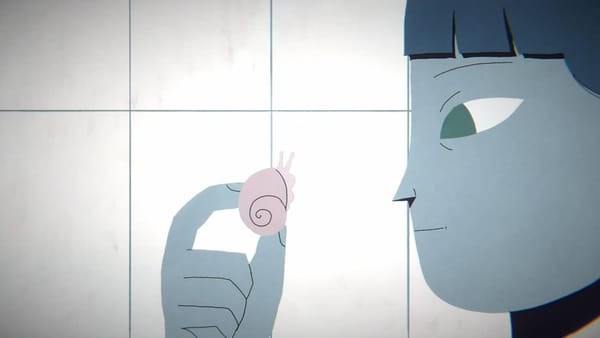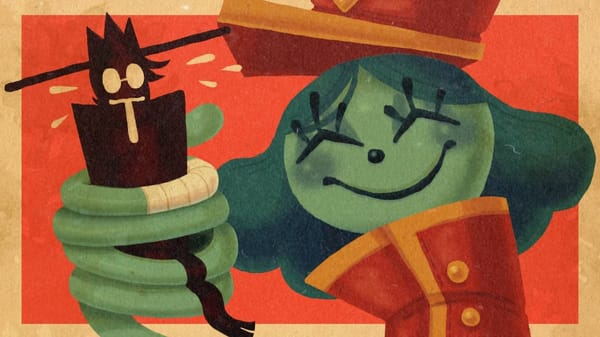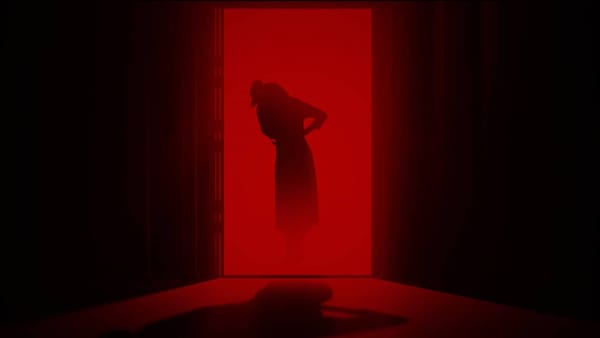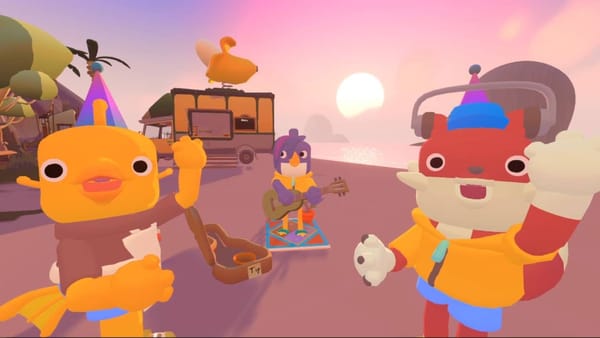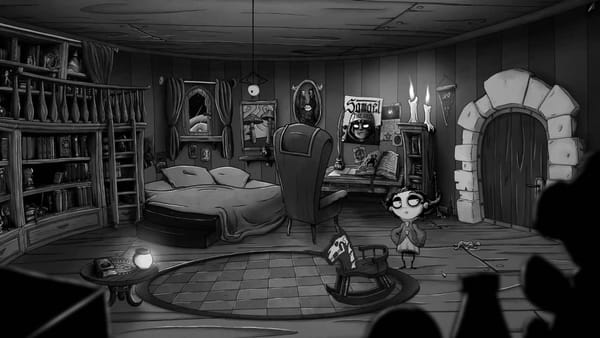Reserved into thinking only a few people will flock to this Terra Memoria review a month or so after release, as this was a code provided for a write-up; it is my duty to the people of Constance to report my findings.
Y’see, they’re having a bit of a hard time, what with being attacked by carcases and running short on the crystals that power the land. Cue a bunch of heroes that coincidentally cross paths and play a part in a prominent role, though as this is an RPG, expect a fair amount of detours before progressing with the main story arc.
It’s not that Terra Memoria is a big ‘ol game, but it’s relatively short if we compare it to the common RPG, and that’s not a bad thing. You try covering a couple of 40+ hour games in the space of a week. It’s simply not going to happen, and to be fair, if a game is going to take that long, it’s better to embrace it rather than storm through the core story for a quick win.
That said, while decent enough, the characters in the game don’t offer much of a paper trail in terms of origins. Sure, they have a worthy enough premise, but the key word here is ‘accessible’, and by that, I mean it’s accessible to a broader range of people who might not perhaps have played one of these games or found them daunting.

It’s ‘kind of’ Octopath Traveler, for one obvious reason, and one not so obvious until you play. The first one is the visuals: Terra Memoria is a gorgeous game that blends 3D and 2D pixel art to an almost flawless level; utilising that ‘toy box’ camera filter affect that has a knack for focusing in and out of the foreground and background with impressive results.
The character design is excellent, and the level of exploration is enjoyable, and more appealing than the core narrative. Surely every RPG is about knee-deep, completing every sidequest and uncovering every lore? There’s a fair share here, but arguably more accessible than most games from the genre. This isn’t a casual game, per se, but it does adopt a more relaxed approach than most.
That second comparison to Octopath Traveler is the variety of characters. There are six in total, and each brings their own style of play to the arena, as well as an origin story/motivational storyline. It’s all very pleasant and easy to get into, though, as mentioned above, it errs more on the relaxed method, so expect some degree of hand-holding.
Combat in Terra Memoria is turn-based, though, unlike many similar titles that flirt with a different mechanic, the tile system here is somewhat unique. You’ll choose an action, and once that’s complete, the appropriate number of action points apply. At the foot of the battle timeline, your character will also appear before or behind an assailant (if it’s at the same time, they’ll be placed behind by default).
This is key to tactics as a heavy attack will cost more action points, meaning you’ll have to wait longer plus at the risk of being attacked. The caveat to this is the elemental attacks that exploit weaknesses, such as lowering an enemy’s defence so that you can sneak in the old one-two. The combat works well, and entertaining at that. And that brings us back to the story and general gameplay.
Again, exploration is key in an RPG, and Terra Memoria has its fair share of hidden spots and optional paths. However, the emphasis is on optional as many of the quests seem quite trivial – and that’s saying something for side quests. The immersion of discovering this fantasy world is often broken through the clunky UI and title-like card each time you start a new quest (these pop ups happen with the battles, too). Though that’s a ‘for’ point for La Moutarde and Dear Villagers as it’s inclusive for more casual gamers, those familiar with the genre might get mildly frustrated with the… interruptions.
Overall, Terra Memoria is a decent RPG with a decent amount on offer. For me, the presentation is the standout, followed by the combat system, and perhaps the pin system used to gear up your characters withough having to think about apparel. While random encounters aren’t missed, the more laid back approach didn’t always go in its favour.


